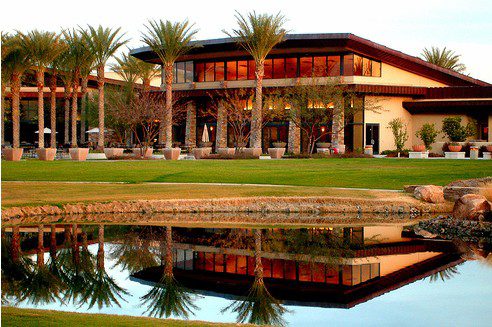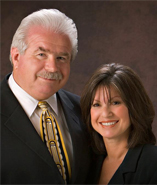 By Joe Szabo,ScottsdaleReal Estate Team
Known for tiled roofs and stucco finishes, Mediterranean-style homes are frequently found in states with warm climates and Spanish histories.
A potpourri of influences fromSpain,Italy,Portugaland other countries around the Mediterranean region of the world can be found in the architectural style that today bears the same name.
Mediterranean architecture inNorth America, which was extremely popular from 1918 to 1940, echoed the haciendas in the Spanish New World with their red tile roofs, arches and plaster made rough to resemble plastered adobe. Many homes inCaliforniaandFlorida, states which have Spanish, histories, were built in this style.
Over time, flourishes from other European countries (France,Italy,Greeceand the Balkans), could be found in the houses. Asian inspirations fromTurkey,CypressandLebanonjoined North African countries likeTunisia,MoroccoandAlgeriain the mix.
Today, many ornate homes that combine elements from any of those countries are calledMediterranean(or Neo-Mediterranean) because of the composite of cultural influences from that region. Houses may feature terraces or courtyards, stucco finishes, porticos, balconies or any number of elements inspired by houses on theMediterranean.
“Some of the earliest Mediterranean is Churrigueresque,” says Merry Ovnick, associate professor of history atCaliforniaStateUniversity, Northridge, explaining that the Spanish Baroque styles in grand buildings stemmed fromMexicoandPeru. “In the 1920s, people didn’t want to talk about copying Mexican things, so they called it Spanish revival. Houses with classical columns around the driveway picked up from northernItaly. The greater formality came fromItalyorNorth Africa.”
In the 1920s and 1930s, Hollywood movies featured romantic Mediterranean sets, and celebrity magazines showed stars living in Spanish Colonial, Tudor or small castle-like houses, creating the peak period for construction of Mediterranean homes, says Ovnick, author of Los Angeles: The End of the Rainbow (1994, Balcony Press), a book documenting architecture as a Southern California phenomenon.
The Depression put a damper on home building, and after World War II, the emphasis moved to simple stucco tract housing. But in the 1960s, Mediterranean homes began gaining in popularity again. While they can be found across theUnited States, most are inCalifornia,Floridaand Southern states, all of which have Mediterranean-like climates.
Key Elements
By Joe Szabo,ScottsdaleReal Estate Team
Known for tiled roofs and stucco finishes, Mediterranean-style homes are frequently found in states with warm climates and Spanish histories.
A potpourri of influences fromSpain,Italy,Portugaland other countries around the Mediterranean region of the world can be found in the architectural style that today bears the same name.
Mediterranean architecture inNorth America, which was extremely popular from 1918 to 1940, echoed the haciendas in the Spanish New World with their red tile roofs, arches and plaster made rough to resemble plastered adobe. Many homes inCaliforniaandFlorida, states which have Spanish, histories, were built in this style.
Over time, flourishes from other European countries (France,Italy,Greeceand the Balkans), could be found in the houses. Asian inspirations fromTurkey,CypressandLebanonjoined North African countries likeTunisia,MoroccoandAlgeriain the mix.
Today, many ornate homes that combine elements from any of those countries are calledMediterranean(or Neo-Mediterranean) because of the composite of cultural influences from that region. Houses may feature terraces or courtyards, stucco finishes, porticos, balconies or any number of elements inspired by houses on theMediterranean.
“Some of the earliest Mediterranean is Churrigueresque,” says Merry Ovnick, associate professor of history atCaliforniaStateUniversity, Northridge, explaining that the Spanish Baroque styles in grand buildings stemmed fromMexicoandPeru. “In the 1920s, people didn’t want to talk about copying Mexican things, so they called it Spanish revival. Houses with classical columns around the driveway picked up from northernItaly. The greater formality came fromItalyorNorth Africa.”
In the 1920s and 1930s, Hollywood movies featured romantic Mediterranean sets, and celebrity magazines showed stars living in Spanish Colonial, Tudor or small castle-like houses, creating the peak period for construction of Mediterranean homes, says Ovnick, author of Los Angeles: The End of the Rainbow (1994, Balcony Press), a book documenting architecture as a Southern California phenomenon.
The Depression put a damper on home building, and after World War II, the emphasis moved to simple stucco tract housing. But in the 1960s, Mediterranean homes began gaining in popularity again. While they can be found across theUnited States, most are inCalifornia,Floridaand Southern states, all of which have Mediterranean-like climates.
Key Elements
- Red tiled roof. These roofs copied those of Spanish and Mexican missions, which were made out of clay pots and bricks, shaped like half a tube to shed water easily. The air pocket in the tunnel of the half-tube helped to keep air cool; the tiles were fireproof.
- Stucco walls. A stucco finish protects exterior wall surfaces from rain, sunlight and hot temperatures, common in Mediterranean climates.
- Arches. This feature goes back to Roman times, and is a self-supporting element that allows building of lighter weight and sturdier walls. Each of the stones next to the keystone in the arch atop the side columns distributes weight to the sides and downward.
- Ornamental detail. Houses usually feature flourishes ranging from large, heavy wooden doors with ornate carvings to the use of multicolored tiles for the risers of staircases.
- Smith-Heberton House. Nicknamed “El Hogar” (Spanish for “hearth”), this 1916 Mediterranean home in Montecito, California, was designed by architect George Washington Smith, a well-known proponent of the style in the early 20th century.
- Frances Marion and Fred Thomson House. ThisBeverly Hills,CA, house was built by Wallace Neff, a prominent architect of Mediterranean homes, for screenwriter Frances Marion and her movie star husband, Fred Thomson, in 1925.
- Fred C. Aiken House. Architect Addison Mizner launched a “Florida renaissance” inBoca Raton,FL, turning the small, unincorporated town into a luxurious Mediterranean resort community with houses that featured Moorish columns and spiral staircases suspended in mid-air. This 1926 house, on the U.S. National Register of Historic Places, was owned by Aiken, who served asBoca Raton’s mayor from 1929 to 1938.



